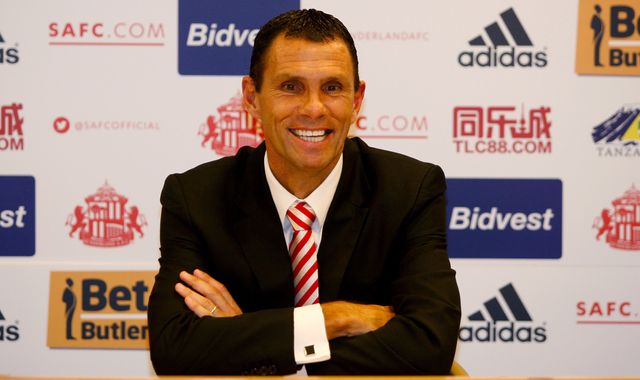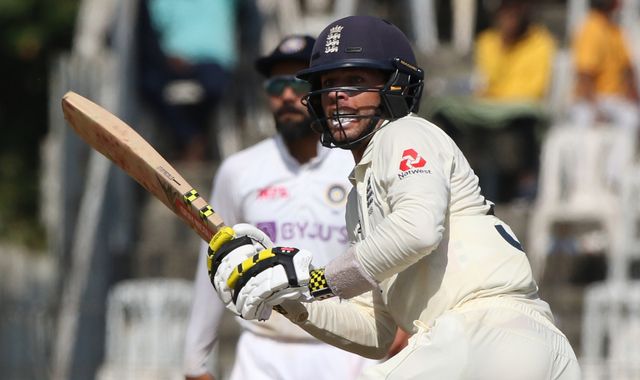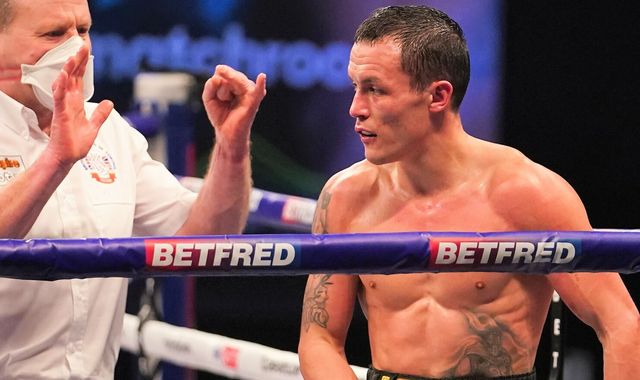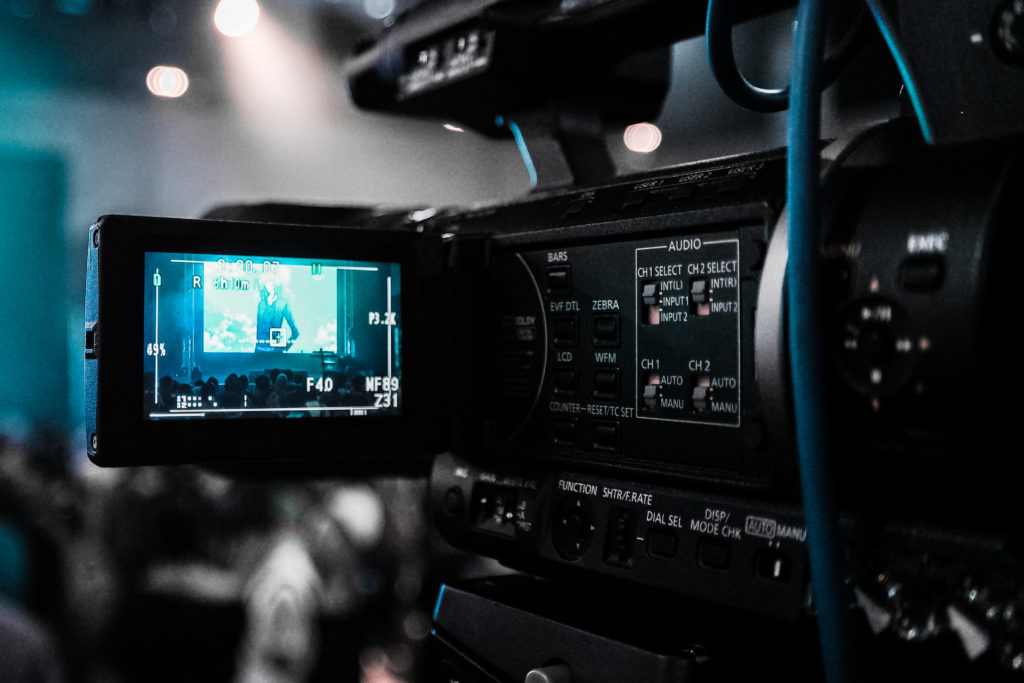Inside Football: Behind the scenes of press conferences
Written by News on 26/05/2020
What really goes on Inside Football? In this new series, we take you behind the scenes into the heart of the game.

This week, we look at press conferences from three different perspectives – the manager, the reporter and the press officer.
What are press conferences for? Do managers always tell the truth? How do you ask a difficult question? What happens when the cameras are off? And why is there always someone sitting next to the manager?
The manager: Gus Poyet
I like to talk and that can be dangerous if you are a manager. I am emotional and open. That is just my personality but the more you talk, the more likely it is that you are going to make a mistake.
I remember once I wanted to go out on to the pitch with a megaphone before a game and speak to the fans directly. I wanted them to hear my voice and clear a few things up but I was told it wouldn’t be a good idea.
When you see me in a press conference, 99 per cent of what you see is the real me. I want to be myself and that can sometimes create problems.
As managers we don’t lie to the media but sometimes we cannot tell you everything. There have been moments when I have wanted to be more truthful but some things have to remain private and confidential. That is the nature of the game. We need to keep things inside.
Having said that, I can’t be one person in the dressing room and then come out and be a different person in front of the media. The attention on managers is becoming so big, especially with social media, that I can see a future when managers take their head of press with them when they move to a new club.
That relationship is so important. The press are so powerful now and they can change people’s opinion of you very quickly. You have to be close to your press officer. Before a pre-match press conference I will sit down with them and go through everything just to make sure that there are no surprise questions.
I know some managers say they don’t read the newspapers, but we are told what’s in them. It is impossible to ignore the media in this job.
Although you can use a press conference to get a message across, you can’t do that all the time. You can’t fool people. They will see through that if you do it every week.
When I was at Sunderland, sometimes I would spend up to 1 hour 45 minutes every Thursday talking to reporters. There would be TV, then national papers, then local papers and then radio. It is tough to stay focused for that long. It’s tough not to say something that could possibly be misinterpreted.
Post-match press conferences can be even more dangerous. There is a rule that you have to speak to the media 15 minutes after the final whistle. Sometimes I will be in the dressing room straight after a game, talking to my players and I will get a knock on the door asking me to go and talk to the media.
In that situation you only have the time it takes to walk from the dressing room to the media to prepare. The game has just finished, emotions can be running high and we might only have 30 seconds to prepare for facing a room full of journalists and cameras.
Sometimes a press officer will advise you not to talk about a controversial incident but then you are asked five questions about it. What can you do? I am not a yes man. You have to try and be honest. I absolutely hate it when people give “no comment” answers. If you are going to do that you might as well not go.
All managers have mixed experiences of press conferences. I have bad memories of one after Sunderland were knocked out of the FA Cup by Bradford City in 2015. I was told the fans were singing against me and I didn’t know what had happened. I reacted in a bad way. It was terrible to be in front of that many people and not know what had really happened.
There are some days though that I will always remember. Being promoted with Brighton, staying up with Sunderland. I will never forget seeing the fans and speaking to journalists and letting everyone see how happy you are. That is a great feeling to share with everybody.
Always remember, though, in football you have to be ready for everything and when it comes to the media you have to be prepared, be honest and be yourself.
The reporter: John Cross
Press conferences are totally different to the way they used to be. I remember when George Graham was Arsenal manager, we would have to call his secretary on a Thursday to see if he wanted to talk to us.
If he fancied it, five or six of us would go to Highbury and have an informal chat with him about the game on Saturday. There were no cameras. That’s what it was like in the old days and it was the same with all the managers – Kenny Dalglish, Brian Clough, they were all the same.
When Harry Redknapp was the West Ham manager we could drop in any time we liked for a chat. Now though, press conferences are big media events.
They are important for us as journalists because it’s a chance for us to get an insight into what is happening at a club, to hear what the manager is thinking and strike up a relationship with him.
You don’t get your best stories from press conferences but they are a still big part of our jobs. And they’re important for clubs too. Look at the way Jurgen Klopp can lift the mood and get everyone behind his Liverpool team before a game.
Gareth Southgate is another manager who is brilliant at dealing with the media. It’s so refreshing to have an England manager who has something to say and is not afraid to say it. Covering England at the World Cup in Russia in 2018 was a wonderful experience and Gareth was so good at getting his message across. He could change the mood of the nation just by what he said.
People think journalists just rock up at a press conferences and take it from there but you have to be prepared. I will call other journalists and my newsdesk before so we can put our heads together and see what questions we want to ask and what topics we want to cover.
Before the actual press conferences start the club communications director might come out and see us while we are having a coffee and biscuits to find out what we will be asking about. There are some excellent press officers working in the game at the moment and the good ones are absolutely brilliant.
Sometimes they might advise you that a manager won’t answer a particular question but if it’s a big story you have to ask it anyway.
On Chelsea’s pre-season Asia tour in 2017, Diego Costa had fallen out with Antonio Conte and we were told that there was no point asking more than one question about Costa because Conte didn’t want to talk about it.
Well, we asked the question and Conte just couldn’t help himself and he really went for it launching one of the longest diatribes I’ve ever heard.
Conte was great to deal with, though. He was so charming and friendly and he could be really outspoken. Sometimes if he had something to say he would just come out and say it.
I’ve covered Arsenal a lot so of course Arsene Wenger has been one of the best managers to deal with. He came up with some great one-liners. I don’t look back too much, though, because I think we have some great communicators managing clubs at the moment.
Brendan Rodgers is fantastic. He’s helpful, friendly and he never dodges a question. Klopp is very good value, Jose Mourinho is excellent and the award for the most improved manager would go to Mauricio Pochettino. He was uncomfortable dealing with the media when he arrived in England but he is now engaging and great fun to deal with.
Pep Guardiola can be awkward and difficult sometimes if he doesn’t like a question but he can be a great talker too and Daniel Farke is brilliant with the media. He is always willing to talk and he can be very expansive.
I wish I could say the same about Unai Emery. He tried but he just could not get his ideas across in press conferences and it made you wonder what it was like for the Arsenal players trying to understand what he wanted them to do.
Another thing that can ruin a press conference is a bad first question. It’s so important to think before you ask a question, especially the first one. That sets the tone. Get that wrong by antagonising the manager and no one will get anything that day.
You always have to ask open questions, and you have to be friendly and respectful. Once the manager is relaxed you can try and ask the more difficult questions.
That is the most important thing. Show respect. Don’t make it about you. Be prepared and make sure you get the right answers by asking the right questions. Ask the questions your viewers and readers want answered.
The head of media: Ian Taylor
I worked at QPR for 12 years and in that time, we had about 20 different managers. The landscape seemed to change every day. You never knew what to expect next. You had to adapt and think on your feet to deal with new managers and new players and new chief executives and new owners.
When you are in the Championship press conferences can be quite low key but in the Premier League you are in the media spotlight.
The planning for a pre-match press conference would start on a Monday morning when I would go and see the manager to talk through the week.
Most managers would want to have the press conference before training on a Thursday morning.
Your relationship with the manager is the key thing. An hour or so before the press conference I would brief him on what to expect. Some of the managers are media savvy so they would be across everything but I would still always insist on having a briefing.
I would try and keep media activity down to 30 minutes and in that time we would have to do broadcast, written (national and local) and radio.
Afterwards, some managers like having a mini debrief where you would talk through what was said. If there was something which could be misinterpreted, I would go out and talk to the reporters to clarify what was said.
Your relationship with journalists is important as well. When you are in the Premier League your phone is ringing all week. You can’t always talk on the record but sometimes you do your best to help with as much background information as you can provide.
Journalists have a job to do and I can’t remember ever having to shut down a press conference. I had to interrupt a few especially when there were too many questions about specific transfer targets.
There were a few interesting post-match press conferences. Managers like Neil Warnock or Harry Redknapp could just walk out after a less than ideal result if the journalists were being niggly.
A lot of the more experienced managers find it easy to deal with the media but some do see it as a chore.
Iain Dowie was great to work with. He really embraced it and he understood the value and importance of the media.
It’s only natural to have a bit of nervous anticipation before a press conference even if you’re not the person answering the questions.
Two pressers stick in my mind now. One was in 2011 when we won the Championship and got promoted to the Premier League. Neil Warnock took the trophy into the press conference room and it meant a lot to see him sharing the glory with some of the journalists who had been following us all season.
Another one was at Wembley after we beat Derby County in the 2014 play-off final. It felt like the whole country wanted Derby to win. We’d had to read so much about how much money we’d spent and how we were trying to buy success. It was sweet to sit next to Harry Redknapp afterwards and watch him set the record straight.
(c) Sky Sports 2020: Inside Football: Behind the scenes of press conferences







